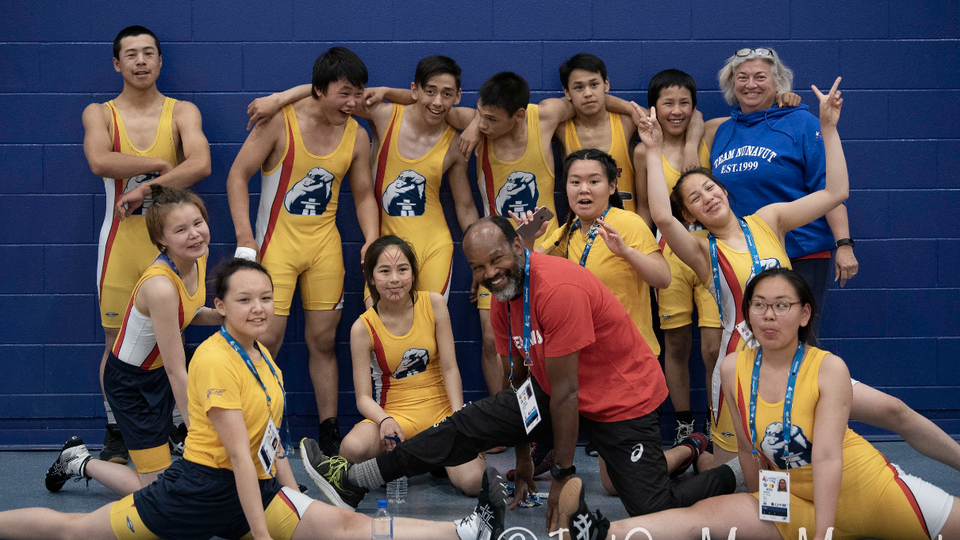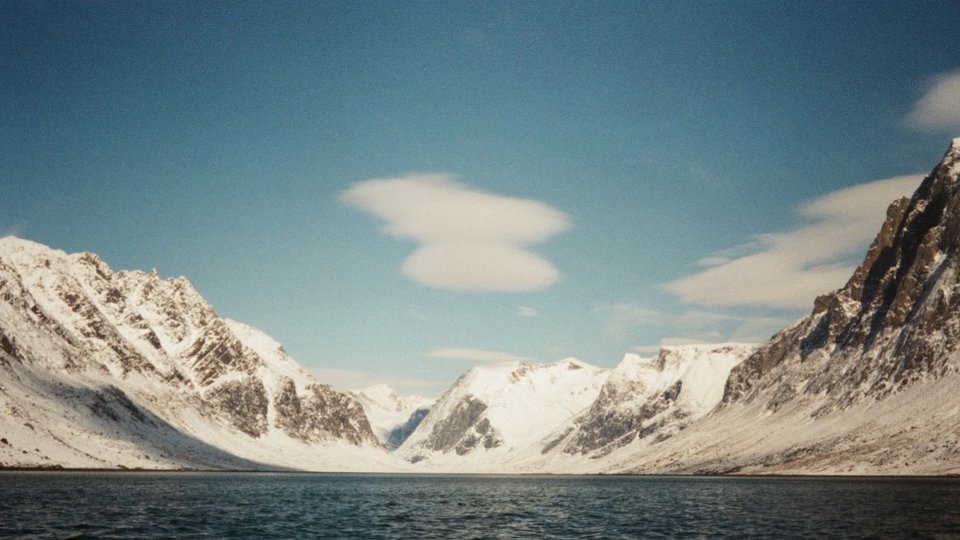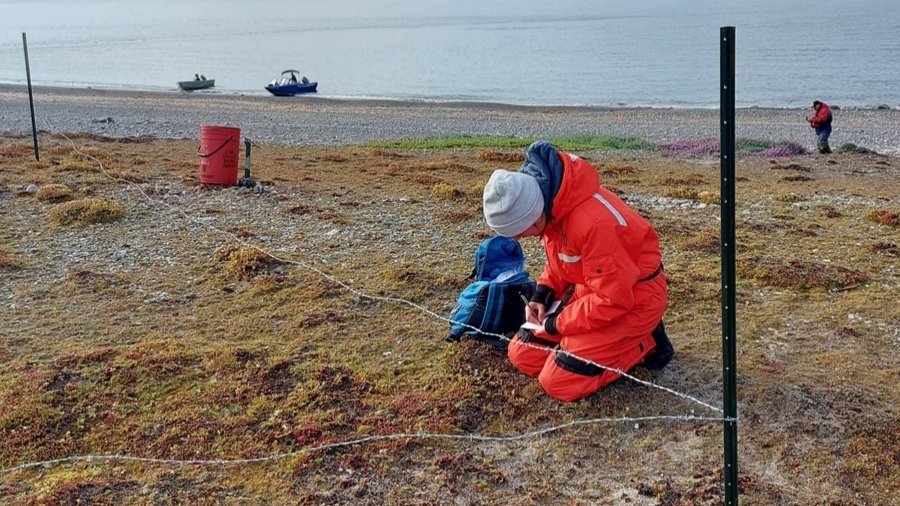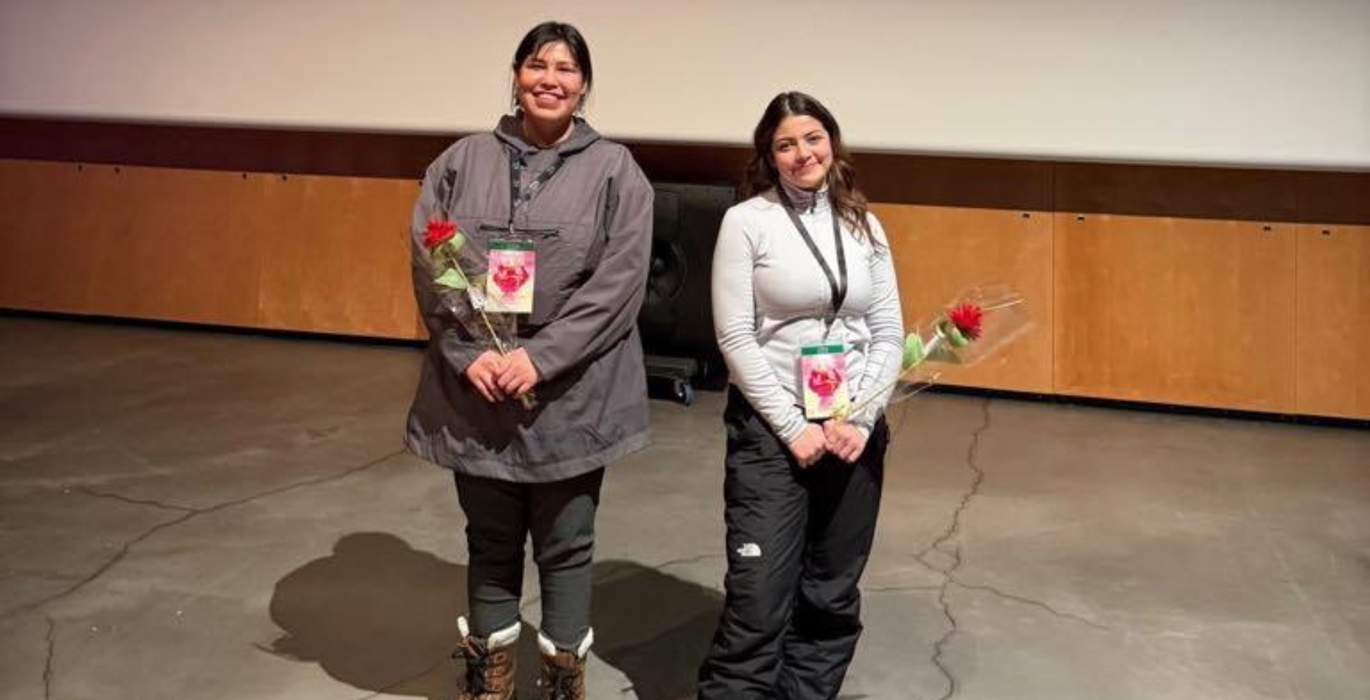
Inuvialuit filmmakers and activists Carmen Kuptana and Eriel Lugt recently debuted their first independent short film at the Skábmagovat Indigenous Film Festival in Inari, Finland. The festival is the world’s Northernmost Indigenous Peoples’ film festival.
Their film, The Children Were Taken from the Land–Now, the Land is Being Taken from the Children, focuses on the impacts of climate change and residential schools within their community of Tukoytaktuk, NWT.
“I was so honoured to see our film on the big screen. It was worth all the hard work we put into it. Seeing other people fighting to make the world a better place and represent their communities was amazing,” said Eriel Lugt.
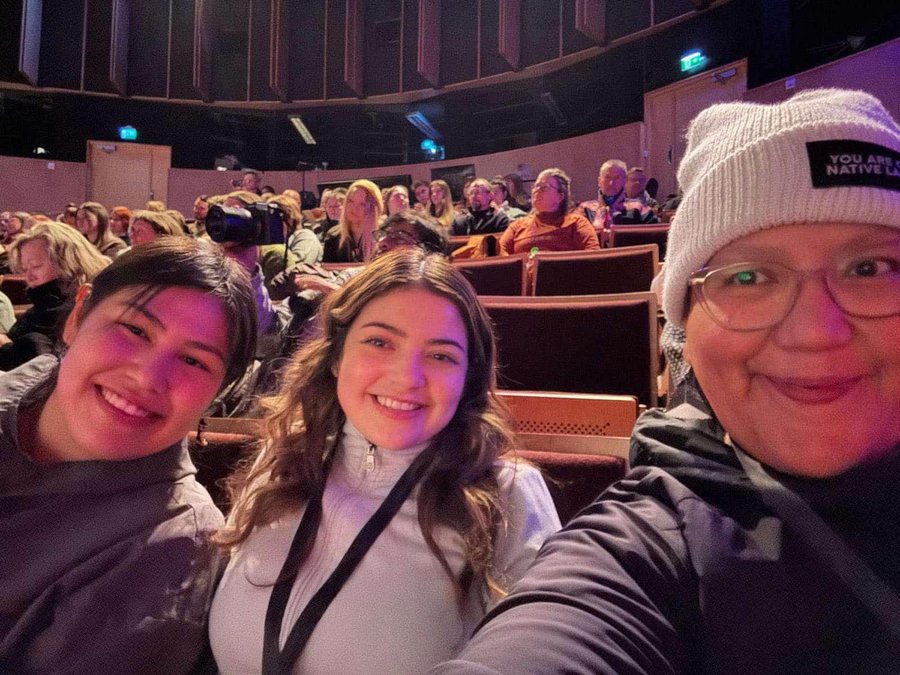
Carmen, Eriel and mentor Darlene Naponse at their premiere at the Skábmagovat Film Festival in Inari, Finland. Credit: Eriel Lugt.
Kuptana and Lugt’s debut at the festival resulted from participating in the year-long Witness 2024 Film Training and Mentorship Program with the Arctic Indigenous Film Fund (AIFF) and Telefilm Canada. Participants in this program were selected for their film proposals and dedication to shedding light on the impacts of climate change within their communities.
Although they applied to AIFF separately, the program paired Kuptana and Lugt to create a film together.
“I wanted to focus on how colonization created climate change, and Eriel had another focus,” said Kuptana. “So when they put us together, we had to compromise to create a shared story.”
AIFF also matched the pair with esteemed Indigenous filmmaker Darlene Naponse to mentor them through the planning, writing, and shooting process. They had a year to create their film with the support of their mentor, Naponse, and Amee Kim-Cương Lê, the Witness Program Coordinator.
“During this process, we talked to our community and family members to learn more about how residential schools impacted their lives and how this is compounded by us now having to adapt to climate change,” Eriel shared. “The experience helped bring me closer to and connect with my culture.”
“It is hard to know Tuk is disappearing and share this message. Seeing the land being washed away and losing land is really emotional."
In Tuktoyaktuk, people face the realities of climate change displacement within their community. Houses are being relocated due to the impacts of climate change as coastal erosion, sea-level rise, and thawing permafrost put houses at risk of falling into the sea. It is estimated that the entire townsite of Tuktoyaktuk will be uninhabitable by 2050.
“It is hard to know Tuk is disappearing and share this message. Seeing the land being washed away and losing land is really emotional. So, some days, we rested and took the time to really enjoy being on the land while we still can. We are grieving the loss of the land, but doing it in a good way,” said Kuptana.
According to Kuptana and Lugt, creating a climate change film highlighting their Inuvialuit culture and communities was challenging, healing, and rewarding.
“Working with your best friend wasn’t without its challenges,” Kuptana laughed. “Eriel’s not in Tuk anymore, so getting her here for some filming was a challenge.”
Living in a remote location and harsh weather conditions also added some challenges. Sometimes, it was too rainy, cold, and stormy to go out on the water.
“There were storm surges when we were meant to film, so we went out to record that. My hands froze!” said Kuptana. “Darlene had to come up to Tuk at one point because our footage wasn’t uploading,” added Lugt.
The AIFF program was more than just learning how to make films. In addition to filmmaking workshops, participants learned how to create budgets, pay contributors, speak publicly, and manage projects.
“Our mentors were awesome, and all the program coordinators we dealt with were women! It was empowering to see women leading the program,” said Kuptana. “The other filmmakers and mentors understood the difficulties and beauty of growing up on a rez and in Indigenous communities.”
Despite being the youngest filmmakers in the group, they felt supported being surrounded by so many other Indigenous artists and people.
“Youth are the future leaders, so we have to speak up. Tell your story. Take risks and chances - you never know where it will lead you,” said Kuptana. “There are never too many Indigenous voices in film - we need to be heard,” added Eriel Lugt.
While in Finland, Kuptana and Lugt had the opportunity to experience Finnish and Sámi culture and engage with Inuit artists and communities across the Arctic. Once their film has finished its festival circuit, it will be available to stream on sapmifilms.com. They also hope to host a screening for their community in Tuktoyaktuk later this year.
Kuptana and Lugt plan to continue using film to share their Inuvialuit culture and voices with the world and are exploring options for studying film. Their highly anticipated full-length documentary, Happening to Us, will premiere later this year. To find out where to see it, follow Tuk TV’s Facebook page.
Kuptana and Lugt’s participation in AIFF and attendance at the Skábmagovat Indigenous Film Festival was supported by the Government of the Northwest Territories. Individuals interested in hosting screenings in Tuktoyaktuk can contact [email protected].
